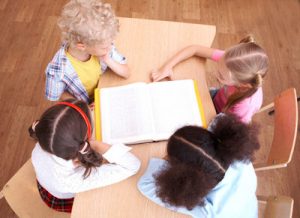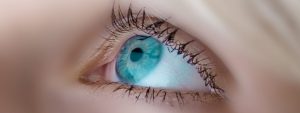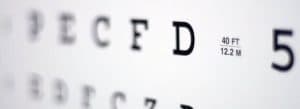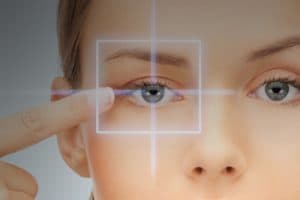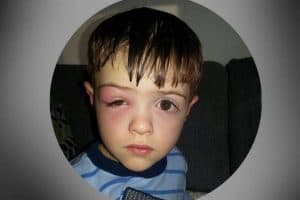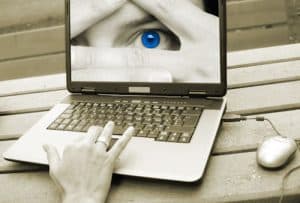Children’s Vision: FAQs
These are the 5 most frequent questions asked to eye doctors on children’s vision. You may easily find answers to your questions below. If you still have questions, contact your nearest eye doctor experienced in children’s vision.
Read MoreWhat is Reading Fluency?
Is your child’s reading below grade level? If so, it could be a reading fluency problem. If a child has some kind of visual dysfunction,
Read More2021 Update: Vision Therapy for Eye Tracking
Over 30% of those diagnosed as having dyslexia have an eye tracking deficit. When a child has a visual processing or perceptual disorder it hinders
Read More2021 Update: Writing and Spelling
Your child’s vision might be clear, but do they also have clear handwriting and accurate spelling? Vision is not just ‘20/20 sight’ but is also
Read More2021 Update: Parent’s Checklist for Vision Therapy
Does your child struggle in school and you’re not sure why? Up to 25 in every 100 children are affected by vision problems — that’s
Read More2021 Update: Vision Therapy for Visual Efficiency
Reduced visual efficiency can greatly reduce a student’s ability to learn or be an adult’s office productivity. Reduced visual efficiency can negatively impact a person’s
Read More2021 Update: Reading Fluency
80 percent of classroom learning is visual, meaning that any problems in the visual system can impact a child’s reading fluency. If a child has
Read More2021 Update: BVD and Eye Fatigue
As many as 90% of people who use computers daily report eye fatigue symptoms. Vision is our primary sense, but most people take their eyes
Read More2021 Update: BVD and Dyslexia
Studies show that up to 15% of the population may be dyslexic, though less than 10 percent actually receive a formal diagnosis. Dyslexia is a complex condition that impacts the way the brain interprets and processes information. It is one of the most common learning disabilities that affects writing, spelling and reading.
Read MoreIs there a Link between Visual Skills and Reading?
We thank Dr Dan Fortenbacher for the context of this blog. This is based on Dr Dan’s blog on the VisionHelp website; ‘The importance of
Read MoreMyopia and Vision Therapy
Vision therapy not only treats lazy eye, eye turn, or learning difficulties, but may also prevent or slow the progression of myopia. While a cure
Read MoreBuilding Self Esteem
Too many children are labelled as lazy learners, poor students, learning difficulty and even dyslexia and ADHD, when it could be an undiagnosed vision problem.
Read MoreWhich Eye Conditions Can Affect Learning?
According to the College of Optometrists In Vision Development (COVD), 25% of all children have an undiagnosed vision problem impacting their school grades. If your
Read MoreCould a Child with ‘20/20 Sight’ Have a Vision Problem?
Studies have found that 1 out of 4 school children suffer from a vision problem that impacts their learning. If your child has 20/20 vision,
Read MoreCould Your Child Have Digital Eye Strain?
Since 2010, there has been a 70% increase of smartphone usage and 40% increase in laptop usage worldwide. Eye doctors are reporting a major increase
Read MoreDoes Your Child Have a Learning Difficulty?
Is your child not reaching their potential at school? Up to 80 percent of all learning comes through the eyes and visual pathways. Strong visual skills are critical for all aspects of learning. If there are problems with your child’s visual skills it could impact their ability to learn.
Read MoreDoes Dyslexia Impact your Work Performance?
Dyslexia affects around 15% of Americans, impacting the lives and work performance of millions of adults. Dyslexia is a learning disability that affects the way
Read MoreVision Therapy for Primitive Reflexes
Retained primitive reflexes can significantly affect a child’s school achievements, confidence and self esteem. There is a significant correlation between retained primitive reflexes and vision skill deficits in the children, ages 6-14.
Read MoreWhat are Retained Primitive Reflexes?
Primitive reflexes are essential for development of your baby’s brain. However, if these are ‘retained’ there could be consequences for your child. The foundation of
Read MoreChildren and BVD
Did you know children can also suffer from Binocular Vision Dysfunction (BVD)? In fact, BVD affects children almost 10 times more often than all children’s ocular diseases combined! Up to 25% of children have binocular vision problems affecting the function of their eyes.
Read MoreHow to Help Your Students Succeed
According to the American Optometric Association (AOA), 25 percent of all children have a vision problem significant enough to impact their learning. Up to 80
Read MoreThe Do’s and Don’ts of Vision Therapy
Has your optometrist recommended a program of vision therapy? Vision therapy is an effective program designed to treat a variety of vision conditions that cannot
Read MoreHow Does Vision Therapy Boost Self Confidence?
Could improving your child’s school grades also improve their motivation and self confidence? Many children who suffer from reduced visual skills are not identified and end up struggling through school and even on the sports field – often being mislabeled as clumsy, lazy, or learning disabled and even misdiagnosed with ADHD. These negative stigmas can significantly impact a child’s self esteem and confidence, both inside and outside the classroom.
Read MoreUnderstanding Convergence Insufficiency
Convergence insufficiency (CI) affects up to 15 percent of all school-age children. Convergence insufficiency is a binocular vision condition that affects near vision and eye
Read MoreSmart in Everything… Except School
Author: Dr. Denise Smith The Center for Vision Development, Austin TX Do you know a child who is smart in everything but school? These children
Read MoreGuide to Eye Conditions
Early detection of most eye conditions can ensure you maintain clear sight and enjoy years of good eye health. Have you been told you have an eye disease or need eye surgery? There are 4 main eye diseases, and many others than can impact your vision.
Read MoreVision Therapy for ADD
Vision Therapy for ADHD Has your child been diagnosed with ADHD, but continues to suffer from reading and attention issues? Does your have eye tracking
Read MoreExophoria and Esophoria
Has your child been diagnosed with exophoria or esophoria? Both of these may appear as an eye turn, and can be successfully treated with eyeglasses and/or vision therapy.
Read MoreDoes My Child Have ADHD?
The primary behaviors associated with ADHD are inattention, hyperactivity, and impulsivity. These are similar to those experienced with undiagnosed visual problems and may be improved with vision therapy.
Read MoreVisual Side Effects of ADHD Medication
What are the visual side effects of ADHD medication?
A child who has been prescribed a medication for ADHD may experience an increase in their visual problems. Many times ADHD medications can have an opposite affect – leading to increased difficulties in maintaining attention in class, as well as other challenges that may worsen the ADHD behavior.
Read MoreThe Myth of 20/20 Vision
Have you been told that your child has ‘perfect 20/20 vision’, but is still not reaching their potential at school?
A child can have 20/20 sight, and still have one or more vision problems affecting their school grades The term ’20/20 vision’ only means your child has clear distance sight, but they may still have lazy eye, eye tracking, eye focusing or visual information processing issues.
A Guide to Children’s Eye Diseases
As your child grows older, annual exams are crucial to ensure that their eyes continue to develop normally, and to detect any changes in vision or ocular health. Importantly: vision screenings conducted by schools are not a substitute for a comprehensive eye exam – ocular diseases and many vision problems cannot be identified through a screening.
Read MoreNeuro-Optometry
Have you suffered a traumatic brain injury (TBI) or concussion and still experiencing vision problems? TBIs can cause double vision, blurriness, headaches and eye strain, these can be successfully treated with a personalized vision therapy program.
Read MoreVision for School
Is your child not reaching their potential at school? For a child to succeed in school they need excellent vision and strong visual skills, including eye tracking, focusing, binocular vision and visual processing. These skills can be enhanced with the correct eyewear and vision therapy.
Read MoreVision Therapy for Children
Are your child’s school grades not a true reflection of their potential? Has your child been told they have a learning or attention difficulties?
The problem could be with their eyes or visual skills and vision therapy might the solution you have been looking for.
A Guide to Eye Infections
Up to 1 in 8 of all children will have an eye infection each year. Parents should be aware of the symptoms of an eye infection to enable prompt identification and treatment. Eye infections can be serious and may cause permanent vision loss. Effective treatment is always needed, especially when bacteria, viruses, or fungi invade the eye or the surrounding areas. The most common eye infections that affect children are called Viral and Bacterial Conjunctivitis— both highly contagious.
Read MoreVision Therapy Quiz
Could a vision problem be impacting your child’s school performance?
Take a quick quiz to find out.
Take a quick quiz to see if your child could benefit with vision therapy. If your child is not performing to their academic potential, they may be suffering from a vision problem. According to experts, up to 50 percent of children with learning difficulties have a vision disorder that is impacting their ability to learn.
Read MoreConvergence Insufficiency and ADHD
This page provides just two of the many research papers that link Convergence Insufficiency (CI) with ADHD. 1. The Relationship Between Convergence Insufficiency and ADHD
Read MoreWhat Is ADHD?
Attention deficit hyperactivity disorder (ADHD) is one of the most common behavioral disorders among children. ADHD behaviors generally interfere with academic and social success and cause many difficult challenges. Over four million American children – up to 11 percent of school age students – are diagnosed with ADHD.
Read MoreVision Therapy: Evidence-Based Research
Vision therapy is an evidence-based treatment modality. Do you want to see a list of references for published research articles on vision therapy and its effectiveness? Some of the references are available as links to original published research or complete articles in PDF format.
Read MoreADHD and Vision: Recent Research
Recent research has shown that ADHD behaviors may actually be a result of vision problems. If your child is fidgety, hyperactive, or distressed by his schoolwork, you may think that a diagnosis of ADHD is obvious. In the last 15 years, many clinical trials have been published and show that many vision problems can affect your child in the same way as an attention deficit disorder. Vision problems can be effectively treated, often without medications.
Read MoreDoes ADHD Cause Social Problems?
Sometimes children with ADHD don’t fully understand what is expected of them in social situations. Children with ADHD usually encounter many obstacles in school, finding it difficult to succeed in their studies. Many children with ADHD face difficulties in reading or math, organization, focus, as well as their attention challenges.
Read MoreCan Vision Problems be Misdiagnosed as ADHD?
While many children with ADHD have 20/20 vision, they may still suffer from vision problems that affect their ability to learn. Functional vision difficulties can produce similar symptoms to those found in ADHD. These visual problems can lead to skipping lines, confusing words and word-order, etc. – making it impossible for the child to read accurately and efficiently.
Read MoreADHD and Vision: Success Stories
Real life stories from parents of children diagnosed with ADHD – when a vision problem was an underlying issue and was successfully managed with a personalized program of vision therapy. *Names have been changed for privacy protection.
Read More























